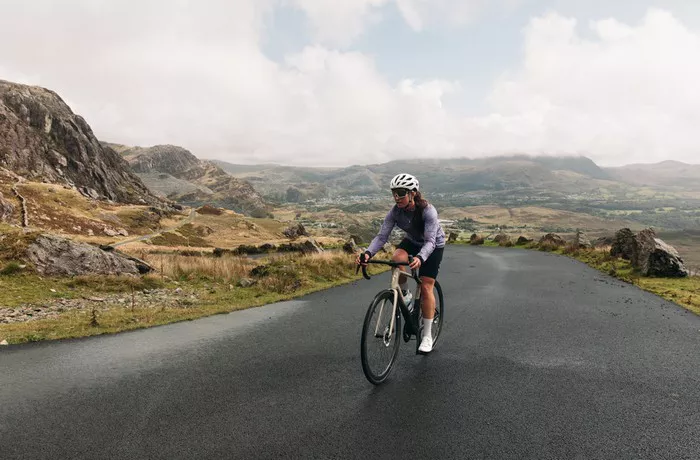In the Netherlands, a country renowned for its cycling culture, helmet-wearing is an uncommon practice. However, Myrthe Boss, a 42-year-old resident of Ede, bucks this trend by donning a helmet each time she rides her bike. This act, standard in many other nations, is seen as unusual in the Netherlands.
With a rise in traffic-related fatalities, particularly among older cyclists and e-bike users, the Dutch government and neurologists like Boss are urging cyclists to reconsider their stance on helmet use.
“I’m an avid cyclist, but it’s crucial to protect ourselves,” Boss stated. “The brain is a highly vulnerable organ with limited ability to recover. A fall from a bike resulting in a brain injury can have long-term consequences. Many cycling accidents result in brain injuries.”
Boss speaks from personal experience: in 2019, her mother died following a collision with a car at a roundabout. “While helmets don’t prevent all injuries, they reduce the impact on the head,” she explained. “Experiencing such a loss in the family makes the importance of helmet use starkly clear.”
According to Veiligheid NL, the number of cyclists seriously injured annually in the Netherlands has increased by 27% over the past decade. The Dutch Institute for Road Safety Research (SWOV) estimates that universal helmet use could prevent 85 deaths each year. The European Transport Safety Council has noted that rising fatalities among older cyclists and e-bike users have set Dutch road safety back by 15 years.
Cycling is integral to Dutch culture, with 28% of journeys made by bike. While children often wear helmets, adults remain resistant.
To address this, the Dutch transport ministry plans to release guidelines on voluntary helmet use next month. Provinces like Gelderland and Utrecht are already promoting helmet use through discount initiatives. Additionally, companies such as Just Eat now mandate helmets for delivery cyclists. A recent editorial in Medisch Contact highlighted the issue with the stark headline: “Looks good on you, that skull fracture.”
Even the Fietsersbond cyclist association is adjusting its stance. While emphasizing that helmets don’t prevent accidents, the association acknowledges the potential benefits of voluntary helmet use. “Focusing too much on helmet use could discourage cycling and seems like victim-blaming,” said Esther van Garderen, Fietsersbond’s director. “Although no society is without danger, we cherish our culture of safe and free cycling.”
Denmark, with a similarly strong cycling culture, views its southern neighbors’ reluctance with surprise. Martin Hein, a spokesperson for Denmark’s transport ministry, noted that while helmets aren’t mandatory in Denmark, many cyclists have adopted them following NGO campaigns. “We must protect our heads to care for our families,” Hein said.
Countries like Australia and Sweden enforce strict helmet laws, but Denmark fears that such laws might deter cycling and negatively impact public health. The Dutch share this concern, according to Patrick Rugebregt of SWOV, who cited public opinion as a significant barrier.
Bart Groothuijze, head of the Castodian foundation promoting safer motorbiking, attributes the resistance to a mix of vanity and a desire for freedom. “Not wearing a helmet while cycling, horse riding, or using any vehicle that exposes you to risks is foolish,” he asserted. “The Dutch are quite vain and dislike being told what to do, but the trend is shifting, especially with e-bikes. Younger people are encouraging their elderly parents to wear helmets, making it a more accepted practice.”

